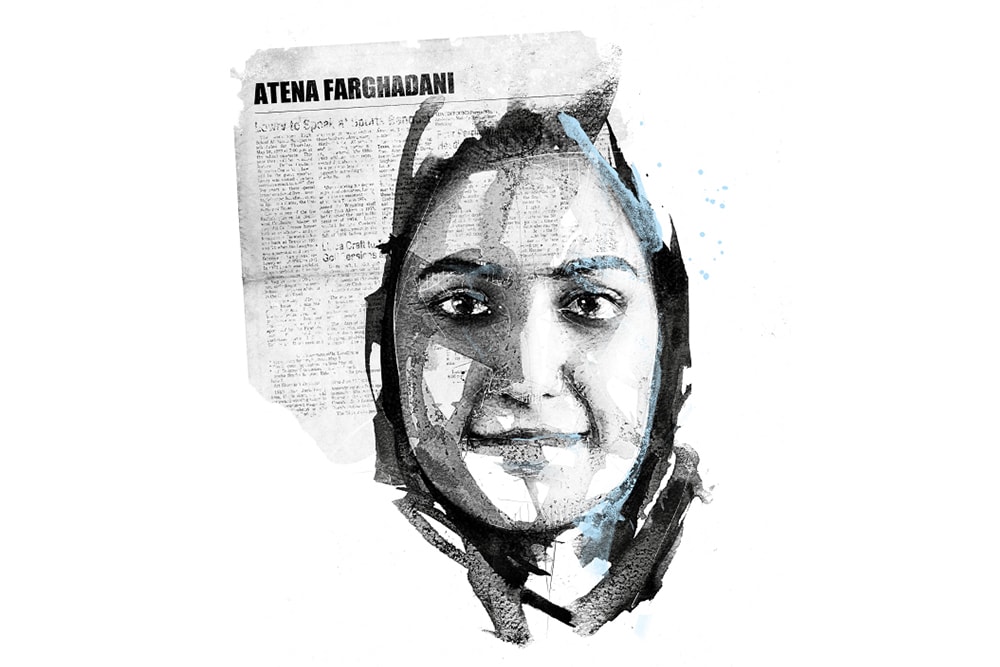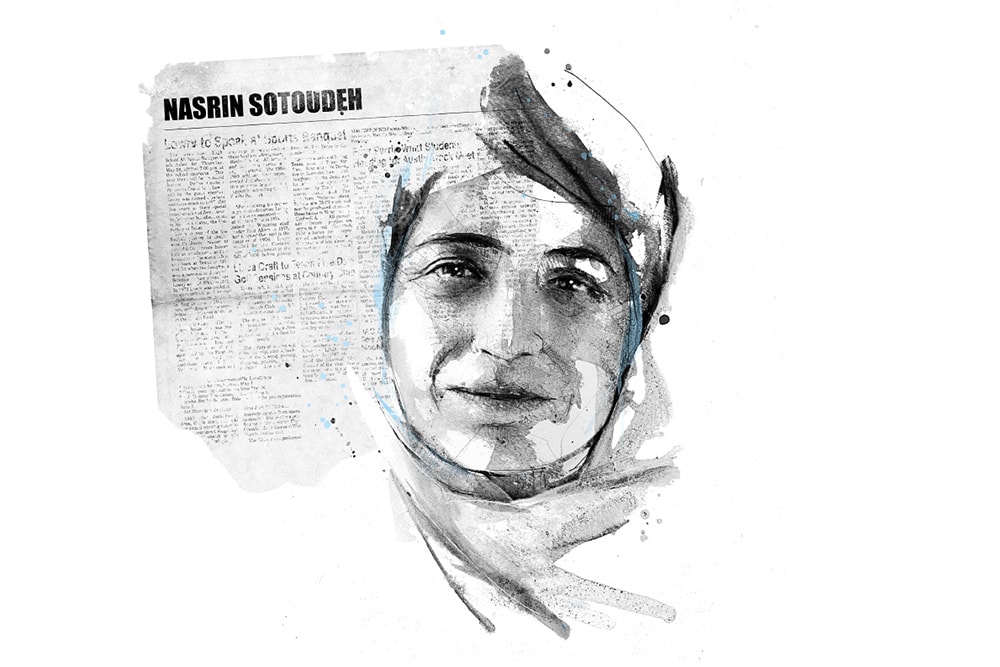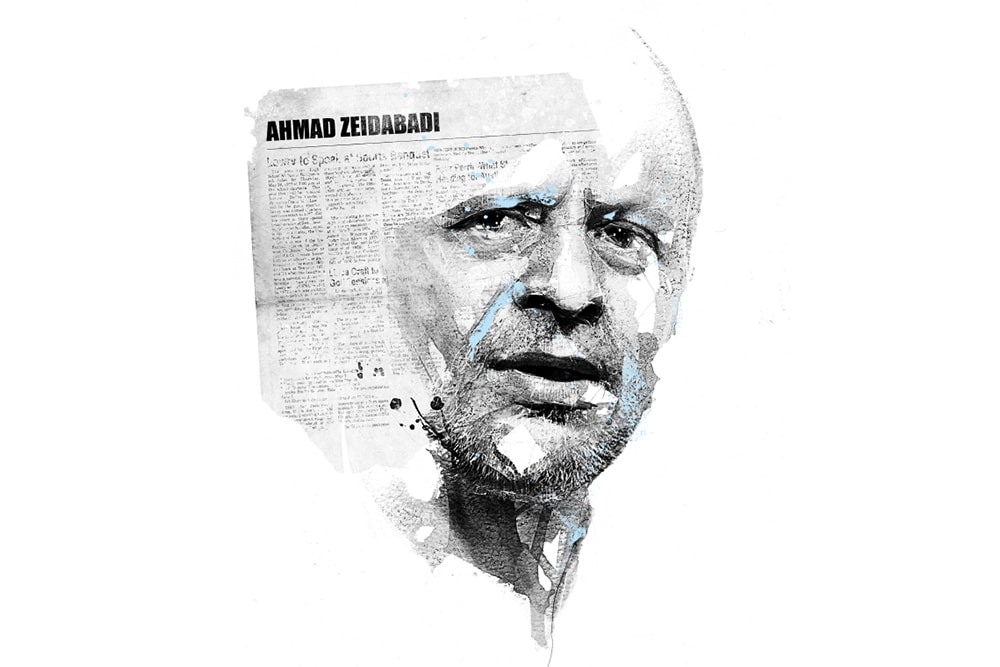Artist and activist Atena Farghadani, released in 2016 after a prison sentence for a cartoon, was arrested again in 2024 and sentenced to six years for posting artwork near Ayatollah Khamenei's compound.
From Atena Farghadani's defence statement, June 2015: I believe that if someone chooses the arts as their subject but does not criticise the issues in their society, they have betrayed themselves, their conscience, and their society.
In 2014 the Iranian parliament announced plans for new legislation on birth control that would reverse Iran’s existing relatively liberal family planning laws, a move ostensibly taken to boost population growth. In recent years, Iran has provided government subsidies for affordable contraception, as well as sexual health and family planning programmes. In 2020, Iran’s Ministry of Health declared that state hospitals and clinics would no longer perform vasectomies or provide contraceptives. Rights groups have voiced alarm over the policy, saying it would set back women’s rights in Iran by decades, in effect turning women into ‘baby-making machines’. They also fear an increase in illegal abortions.
Atena Farghadani’s reaction to the news was to produce a drawing depicting the MPs who had voted for the law with animal faces. In August 2014, Revolutionary Guards raided the activist and cartoonist’s home and took her to Gharchak prison where she was held for six weeks then freed.
Undaunted, in December she posted a video on YouTube in which she told of being beaten by prison guards and interrogated for up to nine hours a day. The video is available here (Farsi only). A fine art graduate from Alzahra University in Tehran, Farghadani speaks of how she was compelled to keep on creating while in prison, a compulsion that overrode her fears of being found out by prison guards. She told of how she was discovered when CCTV footage showed her collecting used paper cups from the washroom. These she had flattened to serve as canvasses. She made pigments from petals and leaves gathered from the prison garden, creating unique paper cup art. In a horrific account, Farghadani describes how guards seized her, strip searched and beat her. On her release she petitioned the authorities, demanding that the guards be punished. Receiving no response, she took to the internet.
Farghadani was duly sent to Gharchak prison in January 2015. Three weeks later, she went on a hunger strike to protest conditions there. She was hospitalised after suffering a reported heart attack. On 1 June she was sentenced to 12 years and nine months in prison in a trial that lasted only half an hour.
Farghadani was also accused of ‘gathering and colluding with anti-revolutionary individuals and deviant sects’ for her exhibition Parandegan-e Khak (Birds of the Earth) that commemorated those killed in the post-election crackdown in 2009. The show was attended by families of political prisoners and members of the Baha’i community.
In a shocking development in June 2015, further charges were levied against Farghadani and her lawyer Mohammed Moghimi. Both were accused of an ‘illegitimate sexual relationship short of adultery’ and ‘indecent behavior after shaking hands during a prison visit that month’ in what Amnesty International described as ‘a gross caricature of justice’. Moghimi was arrested and then released on bail of $60,000 for shaking hands with his client, while Farghadani was subjected to a ‘pregnancy test’ and a ‘virginity test’ by prison authorities.
An international campaign was launched by organisations including Cartoonists Rights Network International, which issued an open call for artists from around the world to create their own images in response to Farghadani’s plight and to post them on Twitter under the hashtag #draw4atena.
On 25 April 2016, after a year and a half of unjust imprisonment an appeals court reduced Farghadani’s sentence from 12 years in prison to 18 months.
Released on 3 May 2016, she continued to fight for justice. In a podcast voiced by UK-Iranian actress Nazanin Boniadi, Farghadani described in her own words her prison experiences and declared her resolve to continue her work, saying: “I won’t stop what I’m doing at all, even though I think I may get sent back to prison. I don’t intend to stop protesting or making political art.”
True to her word, Farghadani was detained in 2023 after posting a satirical political cartoon online and charged with “disturbing the public order.” She was subjected to beatings in prison and her health severely deteriorated before being released on bail. In April 2024, she was arrested again for attempting to post artwork on a wall in Tehran, near the compound of Supreme Leader Ayatollah Ali Khamenei, and later sentenced to six years for crimes related to insulting religious sensibilities and “propaganda against the State”.
Illustration by Florian Nicolle


